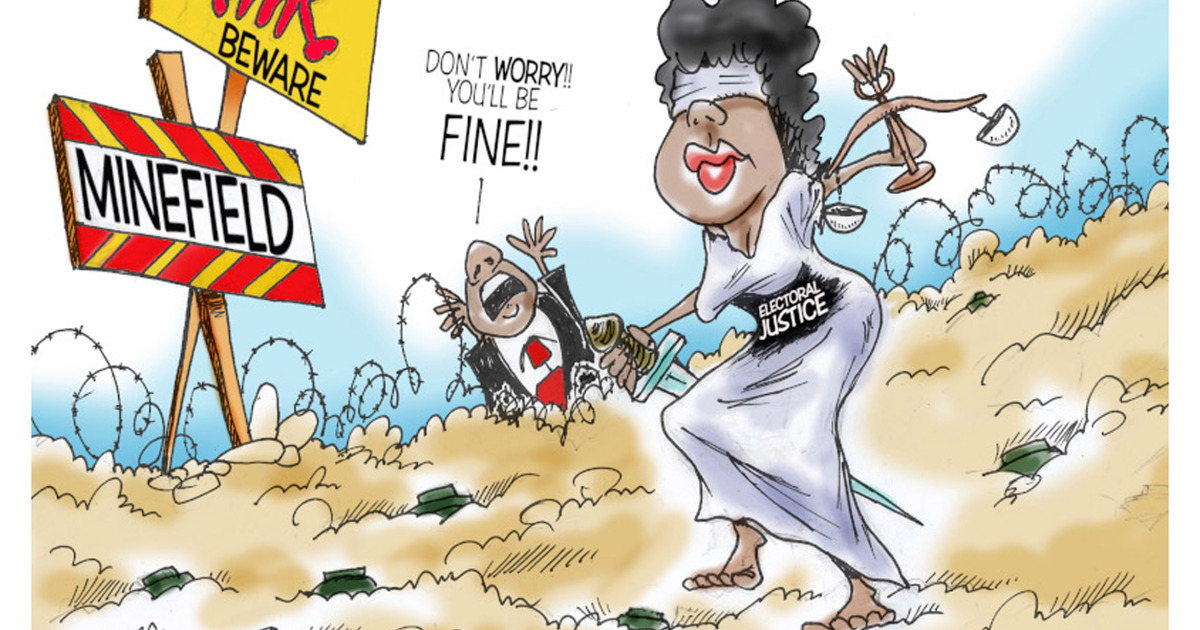Last week Kenya received a wake-up call. A closely-fought by-election pitting candidates respectively sponsored by President Uhuru Kenyatta and his estranged deputy, William Ruto, was marred by various allegations of irregularities: from vote-buying to state interference to misconduct by election officials.
In the past, such abuses have led to significant, even apocalyptic loss of life. Although this time there was little violence, the chaotic contest – which was seen by many as a prelude to next year’s general elections – highlighted endemic problems within the electoral system that could spell disaster if left unaddressed.
Demands for reforms of the electoral system have been a constant feature of every election cycle in Kenya since the reintroduction of multiparty politics 30 years ago.
The script goes something like this: As the general elections approach, opposition demands for changes to level the playing field are rejected by the people in power. Following a season of violent confrontations between police and reform-minded activists – in the last cycle, these were dubbed Maandamano (Demonstration) Mondays after the weekly protests called by the opposition – the politicians cobble together a slew of last-minute “minimum reforms”.
These changes, however, do little to enhance the credibility of the ensuing poll or to prevent conflict. In their aftermath, the traumatised country disavows politics and buries the unresolved problems, only for their spirits to rise up and haunt the next electoral cycle.
For a moment, the unprecedented scale of bloodletting that accompanied the 2007 elections shocked the nation out of its complacency. With international mediators, led by the late former UN Secretary General Kofi Annan, vowing there would be no return to “the status quo ante”, Kenyans set up a series of commissions to look into the root causes of the cycles of violence, including one led by respected former South African judge Justice Johann Kriegler.
However, the moment soon passed. More than a decade later, many of the safeguards recommended by the commission are yet to be implemented.
Controversies over recent elections highlight the fact that the current system is failing to live up to the constitutional requirement for elections to be simple, verifiable and transparent and that even where laws exist, they are routinely ignored with impunity.
A good example was the August 2017 presidential election which was annulled partly because the majority of judges on the Supreme Court agreed that the Independent Electoral and Boundaries Commission (IEBC), the body charged with organising the poll, had behaved as if the constitution and national legislation “did not exist”.
The protagonists in that election, President Uhuru Kenyatta, re-elected a month later in a dubious repeat election, and his erstwhile rival, Raila Odinga, who boycotted the second poll and instead had himself sworn in as the “People’s President”, have since joined forces, promising to put an end to the spectre of violent and divisive elections.
Yet they did not seek to do this by implementing the Kriegler Commission recommendations. Rather, they have attempted to foist their own agenda on Kenyans by amending the constitution via the Building Bridges Initiative (BBI), an effort halted by the courts for now for threatening the basic structure of the supreme law.
In truth, some common-sense changes to the constitution and laws are needed if Kenya is to safeguard its elections. But these are not what Kenyatta and Odinga are after. For example, under the current law, any challenge to the presidential election must be filed within a week, and can only be adjudicated by the Supreme Court, which only has two weeks to hear and determine it.
In 2013, when Odinga first challenged Kenyatta’s election as president, much of the 14-day limit was eaten up suing the IEBC to get the documents he needed to make his case. By the time he presented it, the court essentially denied him a hearing, ruling that there was not enough time left for Kenyatta’s lawyers to respond to the 900-page lawsuit and for the judges to render a considered decision.
To date, the parliament has yet to pass a law that compels the IEBC to speedily and freely avail such documentation when requested, while the BBI also does not include a proposal to increase the time the court would have to deal with it, something that the former Chief Justice Willy Mutunga has said is necessary.
It is clear that the political class in Kenya are not particularly interested in free and fair elections that reflect and safeguard the will of voters. What they want are elections they can manipulate. Sadly, many see electoral reform as a way to enhance their ability to steal elections while denying the same to their opponents.
For the rest of Kenya, though, electoral reform is a matter of life and death. It may already be too late to make any comprehensive reforms before the 2022 election, given the Kriegler commission recommended that any changes be in place at least two years before the poll. However, it is time to get up from the slumber, to fix what can be fixed, and to determine not to go back to sleep again.
The views expressed in this article are the author’s own and do not necessarily reflect Al Jazeera’s editorial stance.

